
What to Look for in Sunscreens for Sensitive Skin?
Finding a skincare routine that works for sensitive skin might be difficult because it irritates quickly. Sunscreen for sensitive skin will have both an SPF and an anti-inflammatory.
You should always have sunscreen regardless of the weather be it summer, cloudy or winter. However, picking a sunscreen might be challenging if you have sensitive skin. Stay with us if you're looking for sunscreen for sensitive skin. In this post, we'll discuss the importance of sunscreen for your skin.
Tips to check whether you have a sensitive skin
Dermatologists don't have a set definition for sensitive skin. Monitoring your skin's response is the most effective technique to determine your skin type. Here are four typical indications that your skin is sensitive.
Reactive skin
If you have sensitive skin, you must have noticed that something or other worsens your itchy, dry, or reddening skin symptoms. In addition, flares can be caused by exposure to the cold, sun, and wind.
Redness of the skin is common
The majority of persons with sensitive skin experience some degree of redness. Redness might appear as a rash, pimples, flushing, or dilated blood vessels. In most cases, the redness subsides after removing the irritant or applying some minimal treatment.
Rashes appear on the skin more frequently
If your skin is sensitive, you may break out in a red, dry, or flaky rash in contact with almost everything. This is particularly true for skincare items you leave on your skin, such as face creams. After touching, a rash could appear on you very rapidly.
You frequently break out
You can experience outbreaks with red bumps that resemble acne if you have sensitive skin. A lotion or acne wash to treat the pimples may worsen the problem.
Things to Keep in Mind if You have Sensitive Skin
Do not use harsh cosmetics on your skin
Your skin might become damaged by products like exfoliants and actives. Therefore, daily use of a chemical exfoliant may be "too much," as it might damage the skin's protective layer. Avoid products that contain AHAs, BHAs, or glycolic acid, as well as scrubs with granules.
Steer clear of "clean beauty" products
You may be tempted to use organic products, but remember that even natural components can cause allergic reactions. This is because "clean" and "natural" are unregulated phrases, which makes it hard for people to find out what goes in those products.
Always do a patch test
Patch testing is essential for everyone, but those with sensitive skin should do it more often. You can detect allergic reactions to unfamiliar skin care products by conducting a patch test.
How do Sunscreens Work on Your Skin?
Many believe that sunscreen blocks the sun's rays, which is all it does. It is far more complex than that. Understanding a little bit about the sun's rays is necessary before learning how sunscreen functions.
There are two forms of ultraviolet radiation: UVA and UVB. UVA rays have longer wavelengths and can cause damage to deeper layers of skin; especially if you aren't wearing sun protection, while UVB rays are more superficial and hence less dangerous. Hence, sunscreens have different compositions but act by reflecting or absorbing light.
How to Choose a Sunscreen for Sensitive Skin?
For sensitive, oily skin prone to acne:
Find a sunscreen that weighs next to nothing and won't clog your pores. Avoiding sunscreen is bad for acne-prone skin because it may worsen the condition by causing inflammation and irritation. Some acne treatments might increase sun sensitivity, but broad-spectrum sunscreen is still essential.
Also read: What Is Acne Prone Skin? Causes, Symptoms, And How To Take Care Of Acne Prone Skin
For extra dry, sensitive skin:
Pick a moisturising sunscreen with ceramides, hyaluronic acid, or glycerin. Make sure that the best sunscreen for dry, sensitive skin is also hypoallergenic and fragrance-free.
Important Ingredients a Sunscreen must have if your Skin is Sensitive
Mineral Active Ingredients
Use mineral ingredients instead. Titanium dioxide and zinc oxide are what we mean by that. These natural minerals are gentle on the skin and won't cause any irritation like certain chemical active components can.
Non-Irritating Ingredients
Other substances besides the active components in sunscreen for sensitive skin irritate the skin. Thus, you should also avoid inactive components known to irritate, such as parabens and phthalates. Parabens because they cause skin rashes and allergic reactions. And, Phthalates because they help to bind the fragrances to products.
Moisturising and Hydrating Ingredients
When selecting a sunscreen, look for one that nourishes and moisturises your skin. Keeping your delicate skin well-hydrated is crucial, especially during the day. This product is a gift formulated with skin-soothing ingredients, including Shea Butter, Cucumber, and zinc oxide.
Fragrance-Free And Gentle Formula
Those with extra-sensitive skin should always check for the "fragrance-free" label. After all, some people's skin is extra sensitive and can be irritated by synthetic smells. The SPF 30 sunscreen from The Pink Foundry is water-resistant upto 80 minutes and free of artificial scents. It is also quite gentle on application and provides dreamy coverage since it is tinted.
Broad-Spectrum And SPF Protection
Buying a sun cream for dry skin that protects you from the sun would be best. This does not mean you give up on effective sun protection just because you have sensitive skin! We recommend choosing a broad-spectrum mineral sunscreen with SPF between 30 and 50.
Conclusion
Sunscreen formulated for sensitive skin is ideal for your and your kid's delicate skin. Thus, choose a mineral-based sunscreen, as these are less likely to contain irritating chemicals. Moreover, also make sure it has a high SPF, is mild, fragrance-free, and loaded with hydrating and moisturising elements.

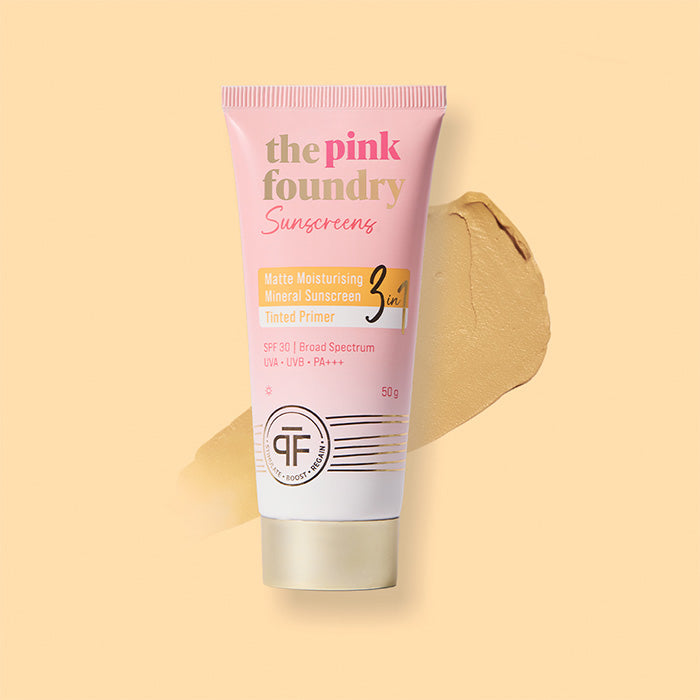

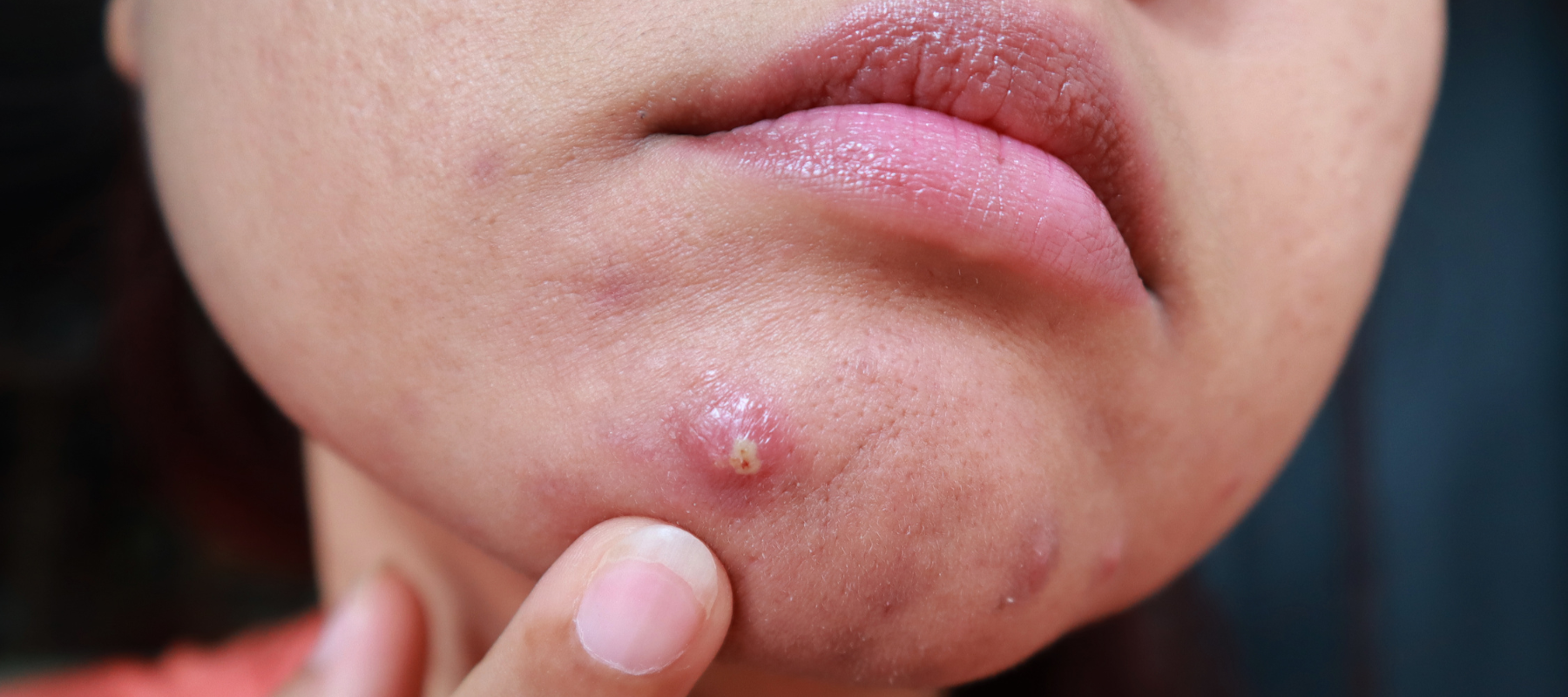



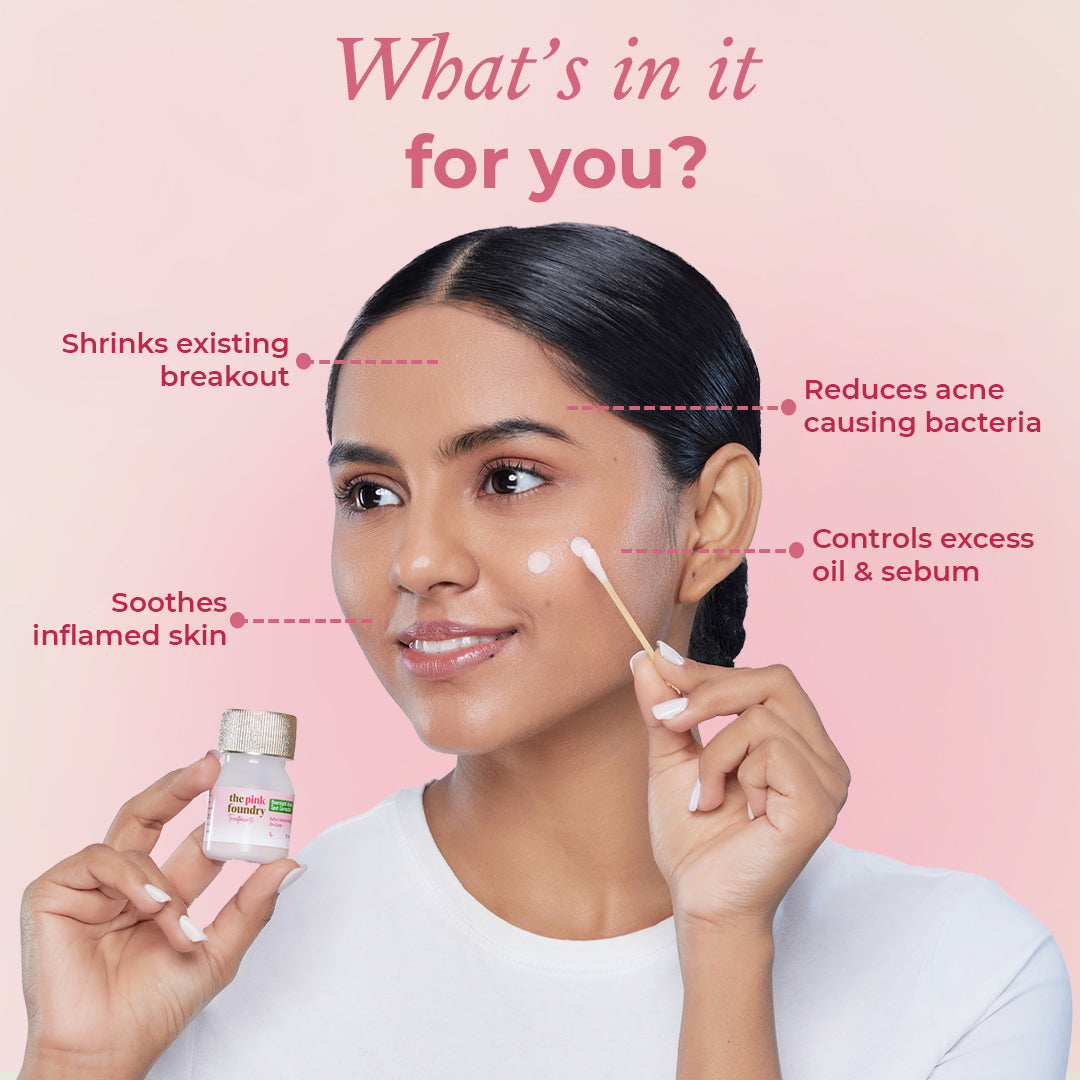
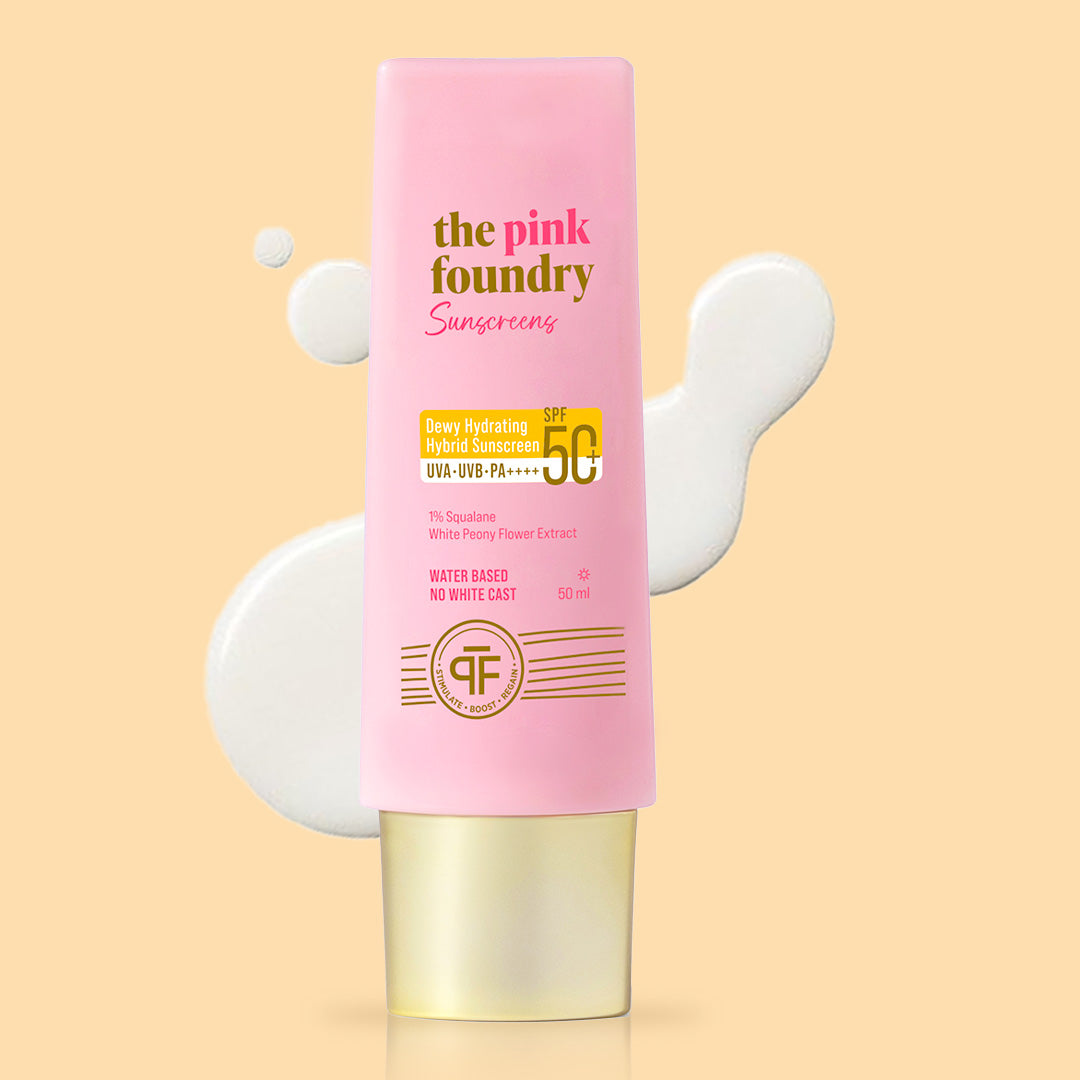
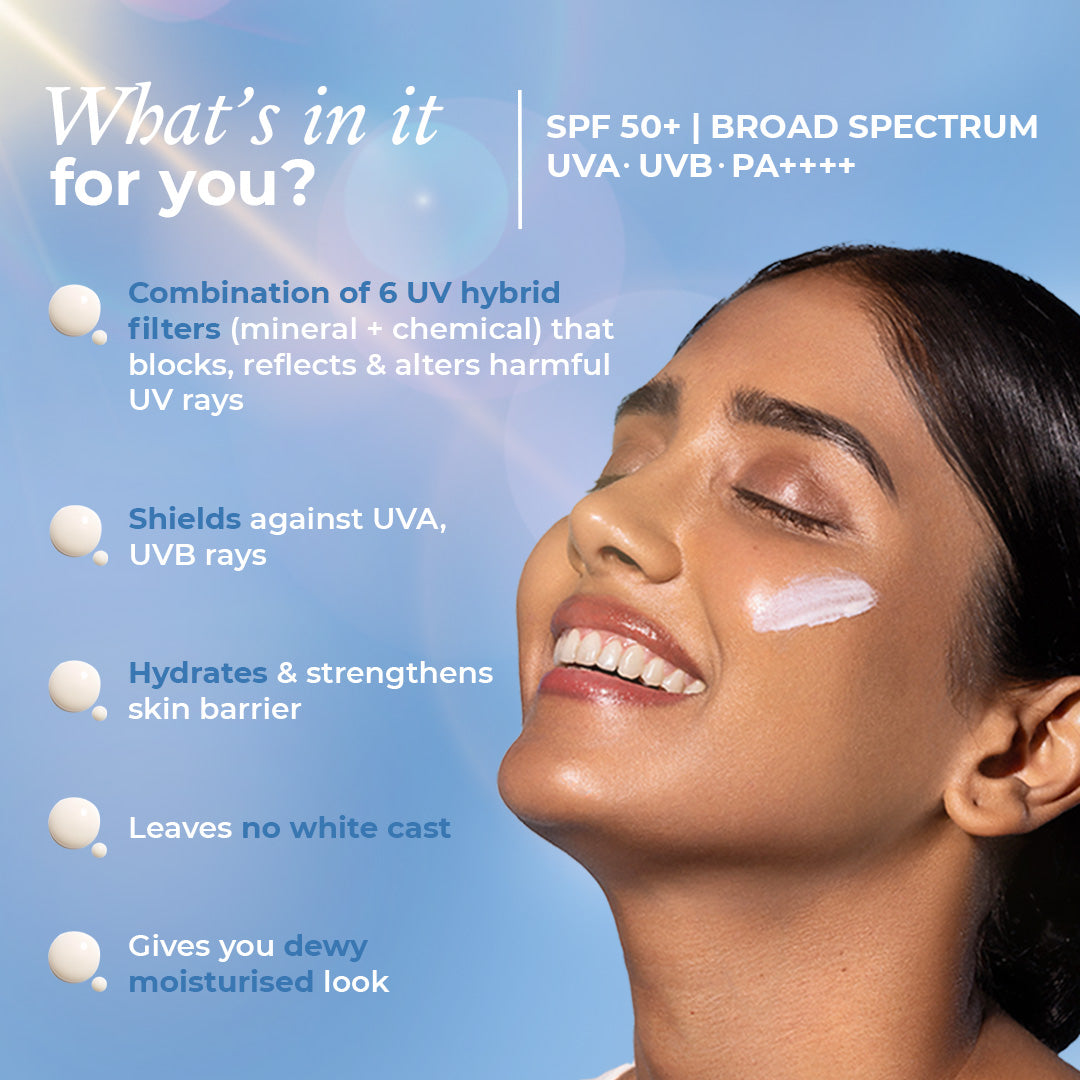


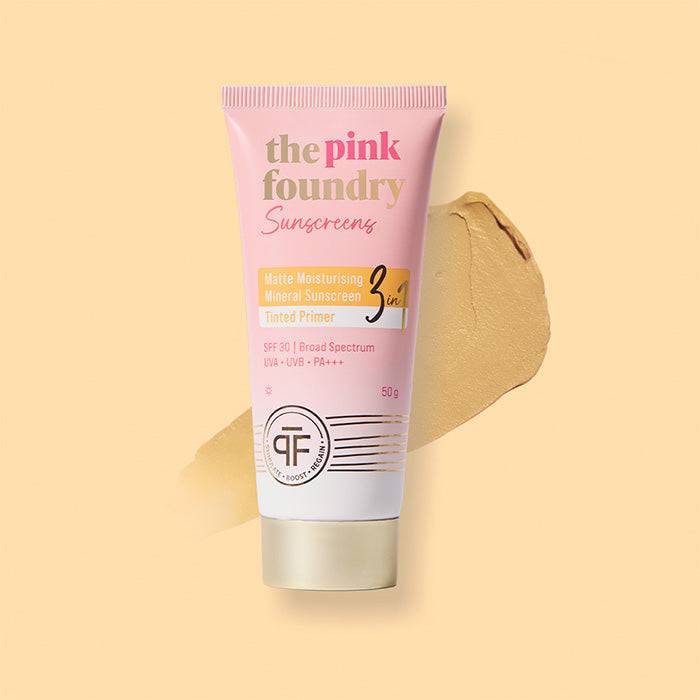
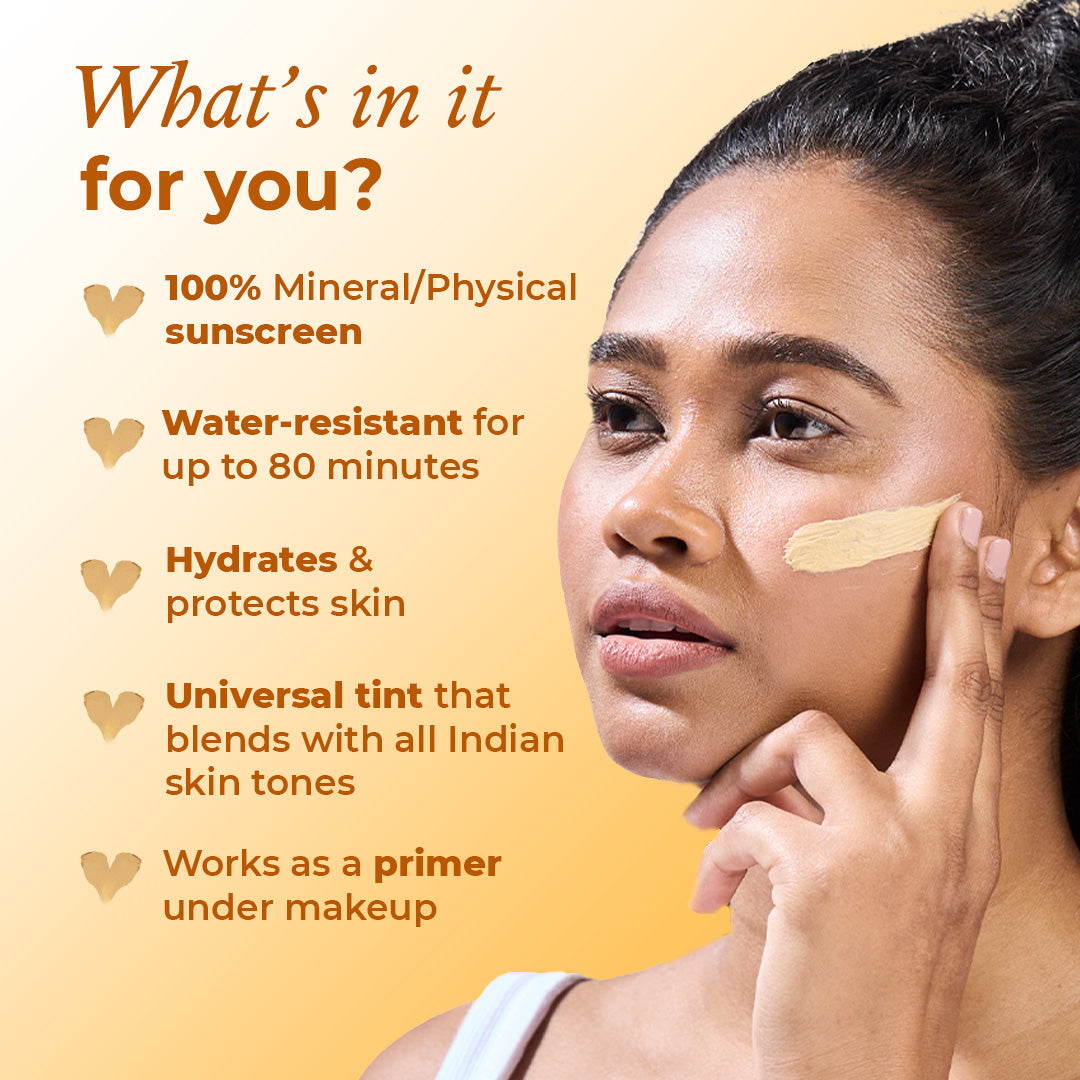



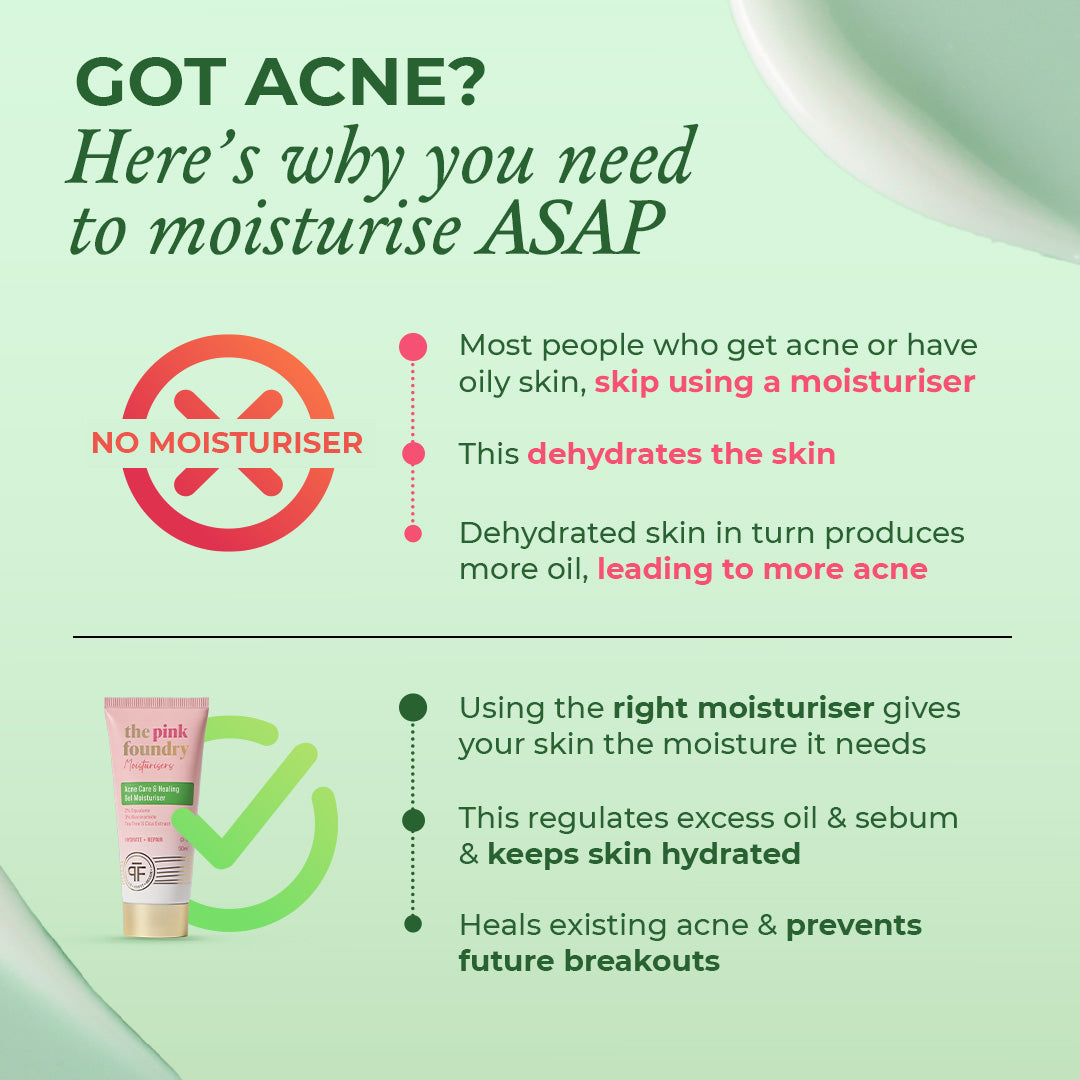
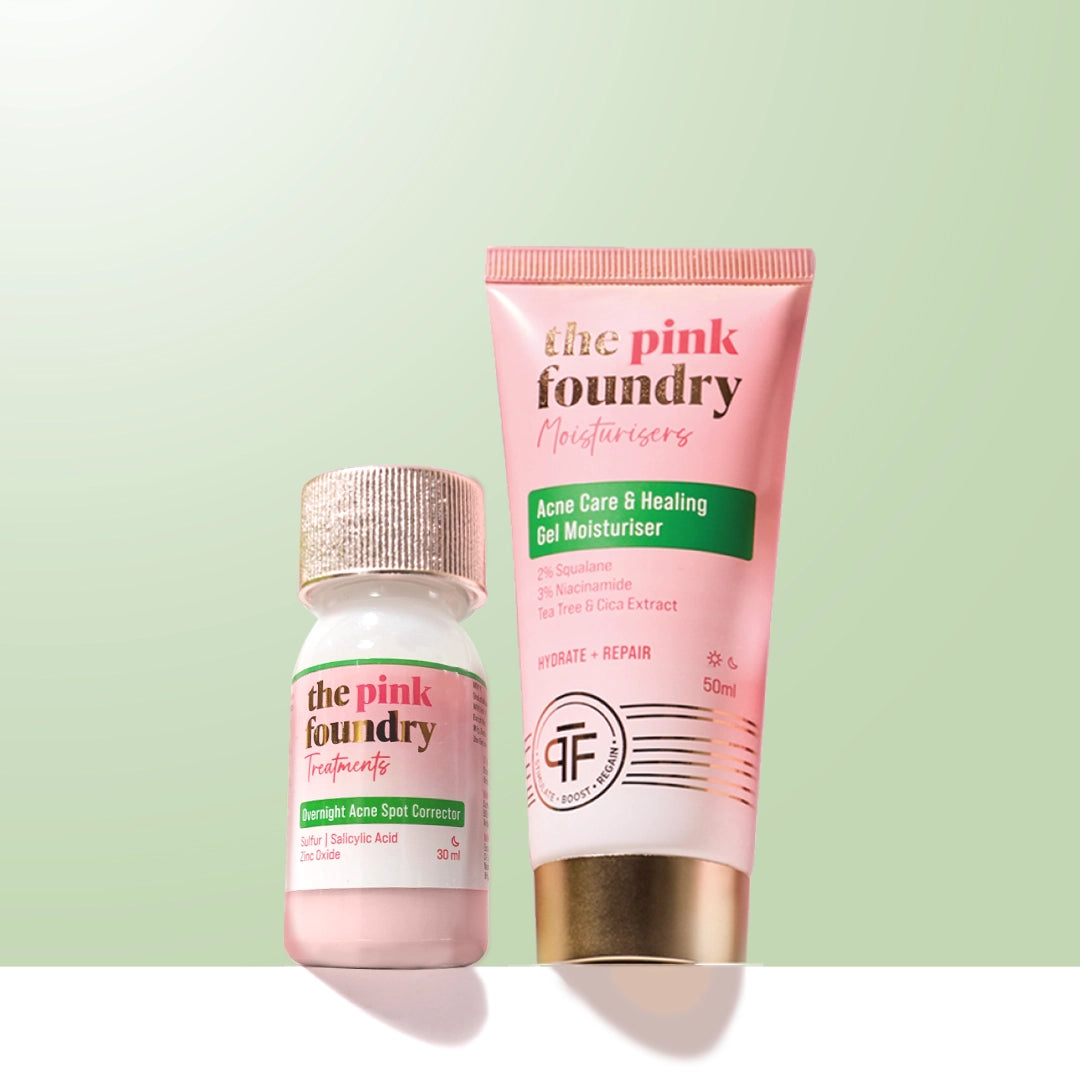
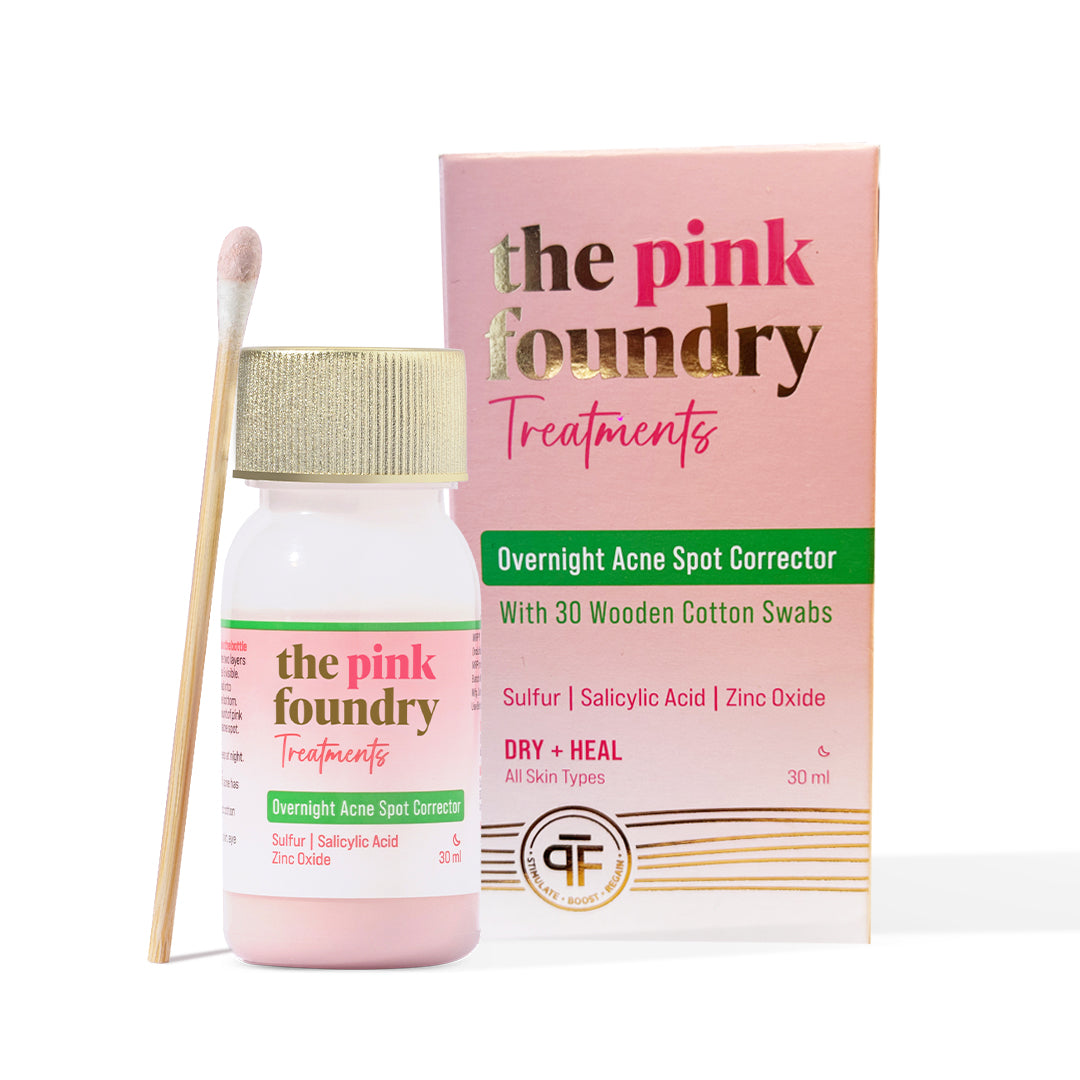
Leave a comment
This site is protected by hCaptcha and the hCaptcha Privacy Policy and Terms of Service apply.